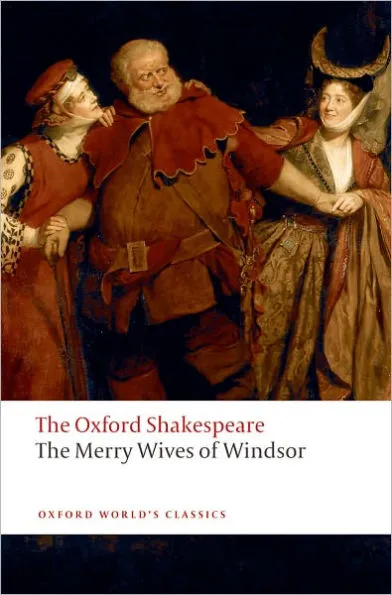
Why Shakespeare Isn’t Fancy
The man of many names is a lauded playwright, poet, and merchant just to name a few. Shakespearian scholars have more than a few books on the topic. He is a lot of things to a lot of people, but let me assure you, Shakespeare isn’t fancy. Shakespeare is just old.
The root of the issue of fanciness all comes back to historical context. Where were Shakespeare’s plays performed? Who watched Hamlet, Othello, and A Midsummer Night’s Dream before the plays were written down? The answers to these questions have puzzled scholars for a long time. Some of the evidence we have today demonstrates that in his period, Shakespeare was putting on plays that appealed to the most people.
The man, the myth, the legend William Shakespeare was born to a wealthy glove maker, tanner, and wool dealer in Stratford-upon-Avon in 1564. He went to a junior school up until the age of 14 or 15 and married at 18. In 1593, Shakespeare published poems and in 1594, Shakespeare founded the performance company, the Lord Chamberlain’s Men. Although he did not inherit his father’s wealth, Shakespeare managed to make serious money. He even owned a substantial amount of land by the time he died in 1616.
That’s all to say, he was a man who knew how to make money. He just happened to make his money with the theater and did so with no regard for propriety.
Shakespeare Isn’t Fancy, He’s Not Even Allowed in the City
In fact, Shakespeare’s players performed at Blackfriars and The Globe, where the rules and regulations of the City of London didn’t have to be followed. As a converted monastery, Blackfriars was technically in a Liberty, so it was outside the jurisdiction of the mayor of the City of London, even though it was within city limits. His other theater wasn’t in town either. On the other side of the tames, sat The Globe. Outside of city regulation and censorship, The Globe was next to other low-class entertainment held at the rose theater and bear-baiting arenas.
The area was popular among the many out-of-work apprentices in early modern London. At the time, the city had a bit of a work problem. Notably, the riot on Tower Hill in London in June of 1595 is just one example of apprentices protesting some of the economic and social conditions at the time. So, there were more young people than apprenticeships available and those positions were poor, but theaters provided cheap daytime entertainment.
Audiences paid a penny for the standing-room entrance and then again for reentry, so it’s likely that many stayed for the whole performance. The leftover remains of discarded bottles, oyster shells, fruits, and nuts from The Globe’s excavations also tell us people were drinking and eating throughout the performances. Sure, fancy people watched the theater. Often the private performances were brought to them though. On the whole, William Shakespeare’s plays were not hand-crafted for the upper class. They were written to make money.
Shakespeare Isn’t Fancy, He Knows How to Make A Profit
Remember that whole “born to a wealthy glovemaker in a small town” thing? Well, we’re getting back to that now. Although Shakespeare had enough family money to afford a reasonable education, he was not a member of the nobility. The merchant-class writer went into theater and poetry with an eye for profit. He wrote things that sold to as many people as possible.
You can tell because we have The Merry Wives of Windsor as living proof. The spinoff from Henry IV part one plays stars the cowardly and comedic Falstaff trying and failing to secure the love and purse of two wives. It’s the Early Modern equivalent of Puss in Boots or Kronk’s New Groove. Sure, they are fun movies, but they are also clear examples of companies looking to make the most money off of the goodwill of existing properties.
Shakespeare Isn’t Fancy, His Slang is Just Outdated
On the whole, the plays are difficult to understand for modern readers and audiences. However, this textual difficulty comes more from age than anything else. Sure, Shakespeare references classical literature and has an excellent grasp of meter and rhyme. He was also mostly using common slang at the time. When given the time and benefit of learning from early modern scholars, they will point out just how many sexual innuendos and jokes are in even the most serious Shakespeare plays. A notable example in Hamlet is the exchange between Hamlet and Ophelia:
HAMLET: Lady, shall I lie in your lap?
OPHELIA: No, my lord.
HAMLET: I mean, my head upon your lap?
OPHELIA: Ay, my lord.
HAMLET: Do you think I meant country matters?
OPHELIA: I think nothing, my lord.
HAMLET: That’s a fair thought to lie between maids’ legs.
OPHELIA: What is, my lord?
HAMLET: Nothing. (Act 3, Scene 2)
In the midst of Hamlet’s either real or feigned decline, he makes a two-pronged joke about having sex with Ophelia. When you recontextualize the plays as common entertainment, these innuendos are much easier to spot. Shakespeare’s plays are also much easier to understand as laugh-out-loud entertainment. Shocking jokes like this draw the audience’s attention away from the snacks and conversation on the floor. These days, the seriousness we often apply to Shakespeare loses some of the original fun.
That is not to say there are not horrific moments of violence, misogyny, and racism in the plays. The mutilation and misogyny seen in Titus Andronicus make it a difficult play to teach and perform. The racism, racial violence, and misogyny in Othello and The Merchant of Venice also require conversation and contextualization around Moorish and Jewish identity in the plays. Even the popular Hamlet must deal with contextualizing madness, misogyny, and suicide. In their own way, the difficulties in these plays are also important insights into the common attitudes of the period.
Shakespeare Isn’t Fancy, But He Can Be Fascinating
What an audience finds entertaining and what they expect to see in their real lives will always be two separate things. However, what an audience will pay to see is an indicator of social values and the topics of discussion on everyone’s mind. Because Shakespeare was writing for a wide audience, these plays still captured scholars’ attention. If his work was fancy or exclusive, people interested in Shakespeare wouldn’t look to the economic conditions of working-class Londoners to understand his audience and references.
That’s why I’m telling you Shakespeare isn’t fancy. His writing is just old. The English language evolves over time, and as it does, old things gain an air of fanciness that makes things feel unapproachable. This is not my call for everyone to read Shakespeare or pay attention to what scholars have discovered about his work. It is just a short introduction to a way of reading or watching Shakespeare and other early modern plays if you decide you want to. Who knows, it might even be fun.












